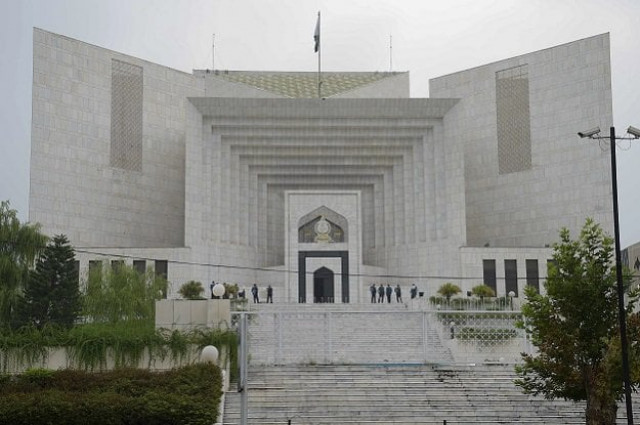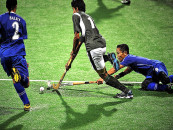SC criticises its 2016 judgment for passing 'sweeping remarks' about police
Justice Khosa negates 2016 judgment which allowed for registration of multiple FIRs

PHOTO: FILE
Interestingly, Acting Chief Justice Asif Saeed Khosa has strongly negated 2016 judgment passed by five-judge larger bench led by former Chief Justice Anwar Zaheer Jamali which allowed for the registration of multiple FIRs in any case. The other members of the bench were Justice Mian Saqib Nisar, Justice Amir Hani Muslim, Justice Iqbal Hameed ur Rehman and Justice Khilji Arif Hussain.
The acting CJP has reproduced certain paragraphs of that judgment, wherein it was stated that “In our society, the police officers are no longer honest, God fearing and fair and the system of investigation is no longer impartial and honest”.
PM cannot own state property as Pakistan is no monarchy: SC
"We feel, with great regard, that making of such sweeping remarks or recording of such pervasive observations about the police or any other department of public service as a whole was unnecessary besides being uncharitable. Interpretation of law by this court ought not to be premised on damning generalizations which are nothing but subjective", said Justice Khosa while commenting over 2016 verdict.
Justice Khosa referred to 2016 judgment in which it was said that a subsequent FIR may be ordered to be registered in the same case if the courts feel that entire investigation could be misleading due to mala fide or motivated acts. “Such an approach sets up the courts as monitors or supervisors of the investigation, a role which the law forbids and the precedent loathes" remarked Justice Khosa over the court's observations.
Acting CJP pointed out that the third thing said in 2016 judgment was a word of caution. Upon this, the judge commented that while making these observations no guidance had been provided as to how "extreme care and caution" is to be exercised, as to how the jurisdiction is not to be exercised "in a routine manner" and as to how, without delving deep into the facts and circumstances of a case at the investigation stage, the courts are to detect, decipher or fathom the motivation on the part of the person seeking registration of another FIR according to his own version of the incident.
Top court turns down Talal Chaudhry's plea seeking time to present witness
"It appears that this court was heavily influenced by the assertion of the party seeking registration of a second FIR that "the alleged culprits could have otherwise escaped from their criminal liability successfully at the very initial stage without even being charged for the offence on the basis of misleading contents of earlier FIR."
Acceptance of such an assertion by this court indicates that the court laboured under an impression that any other version of the same incident advanced by any other party can be brought on the record of the investigation only through an FIR to be registered under Section 154, (CrPC) and such divergent version can be investigated by the police only after registration of a separate FIR in that regard.
Such an impression entertained by this court on that occasion, it is submitted in all humility, was not correct and the same ran counter to the scheme of the law referred to in the earlier part of the present judgment", said the recent ruling.



















COMMENTS
Comments are moderated and generally will be posted if they are on-topic and not abusive.
For more information, please see our Comments FAQ